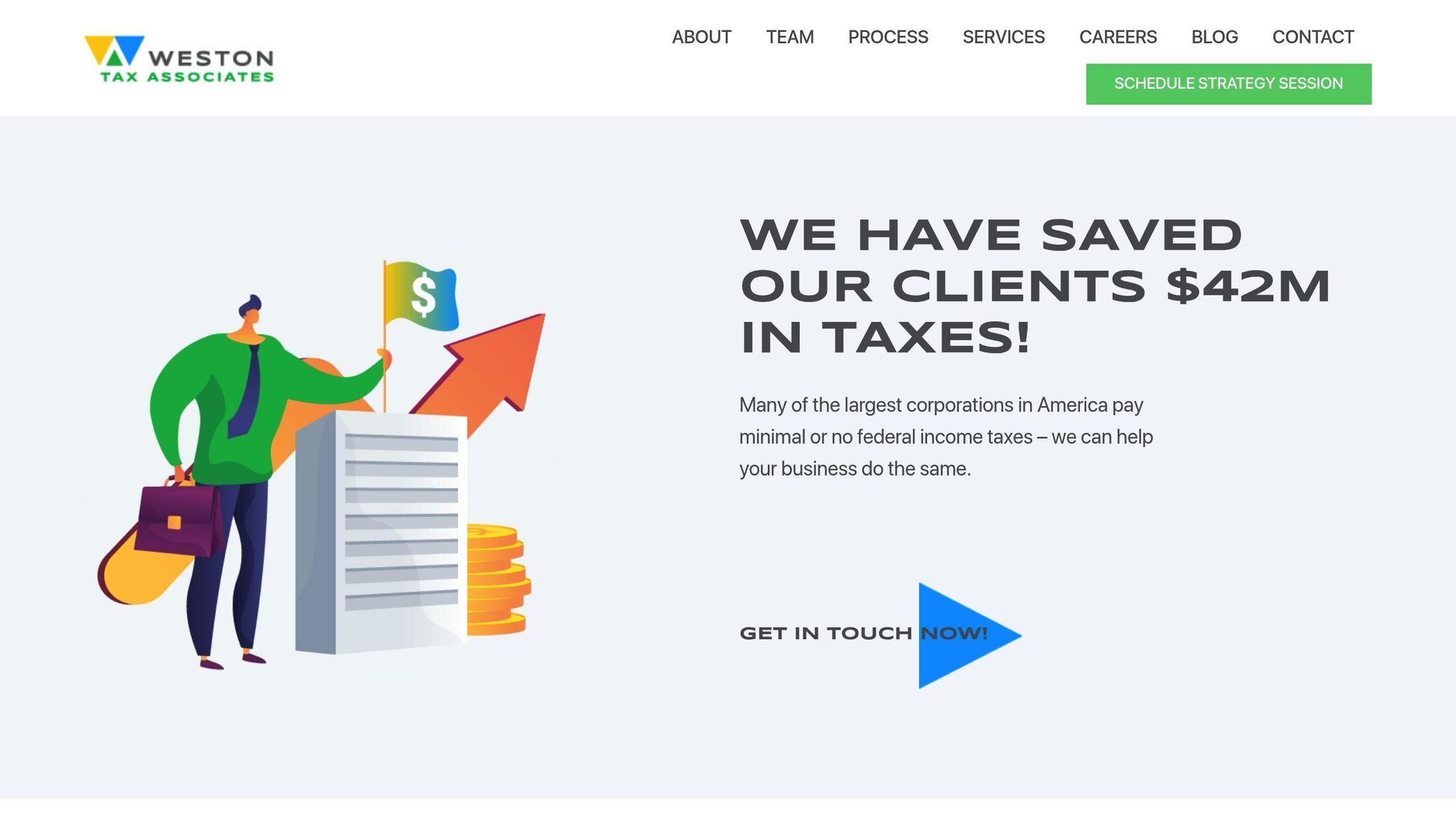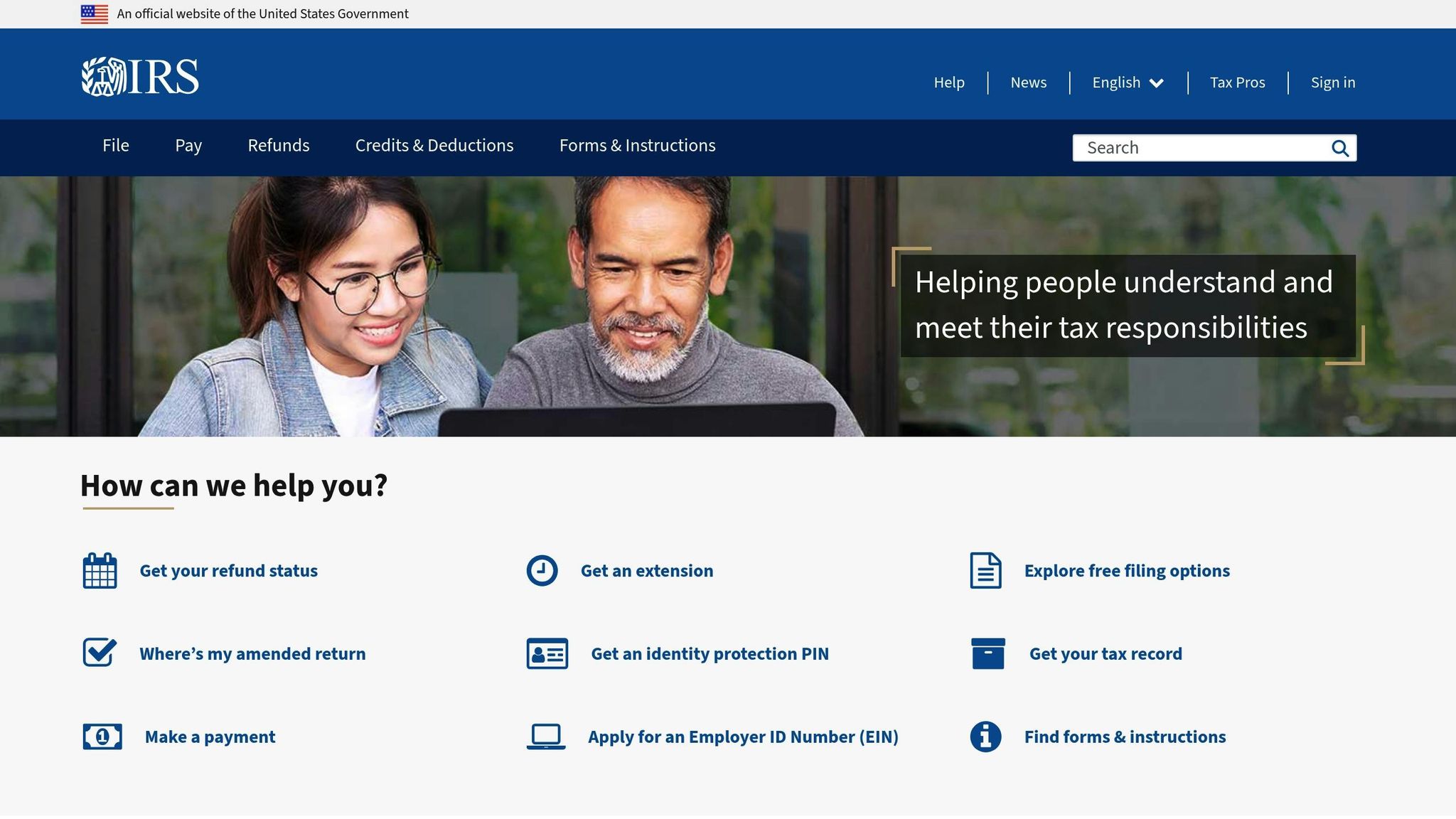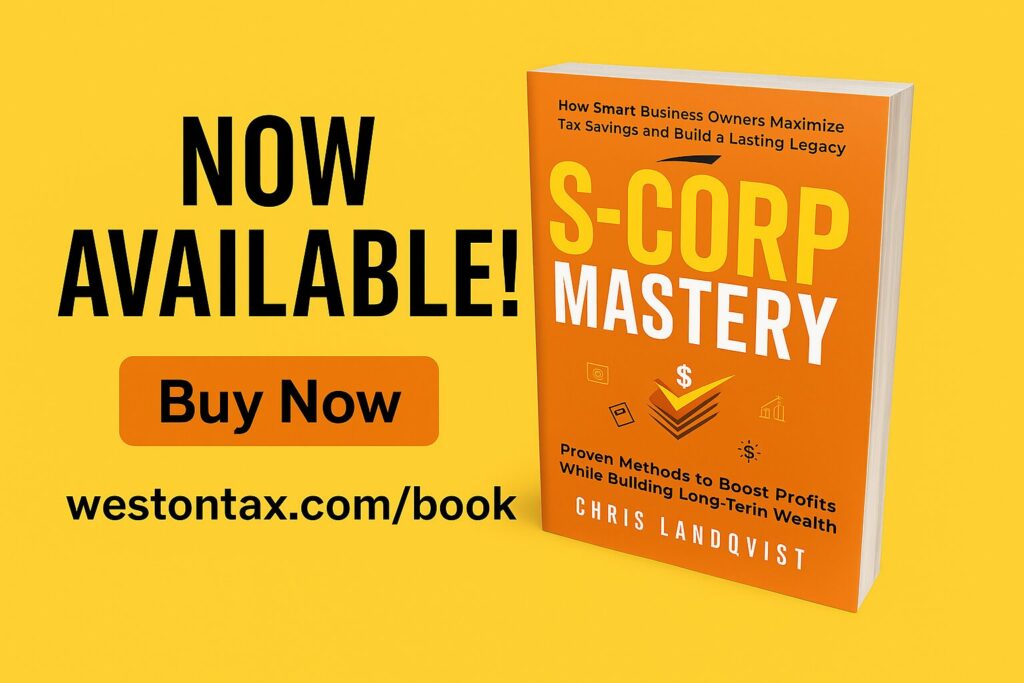Tax risk management is about identifying, assessing, and addressing risks tied to tax compliance, reporting, and planning. For small and medium-sized businesses (SMBs) in the U.S., this is crucial due to frequent regulatory changes and the rising complexity of tax laws. Poor management can lead to penalties, operational issues, and reputational damage.
Key Approaches:
- Professional Services: Firms like Weston Tax Associates provide expert advice, focusing on tax planning, compliance, and IRS negotiations. They’ve reportedly saved clients $42 million by reducing tax liabilities and resolving disputes.
- Technology Solutions: Automated tools and AI-powered platforms improve accuracy, streamline compliance, and provide real-time insights. For instance, 87% of top accounting firms use advanced tax technology.
Quick Takeaways:
- Only 40% of businesses reported having a solid tax strategy in 2024.
- 50% of tax teams lack formal risk management systems, creating room for improvement.
- Technology adoption can reduce errors and save costs but requires upfront investment and training.
For SMBs, combining professional expertise with modern tools can create an efficient system to manage tax risks effectively. Larger organizations, with more complex needs, should prioritize advanced tools to handle their tax structures.
1. Weston Tax Associates

Weston Tax Associates brings a professional edge to tax risk management by combining proven expertise with up-to-date strategies. The firm has helped clients save an impressive $42 million in taxes. Their approach addresses the unique challenges faced by small and medium-sized businesses navigating today’s intricate tax systems.
Tax Planning and Optimization
At the heart of effective tax risk management is proactive tax planning. Weston Tax Associates prioritizes finding legal avenues to reduce tax burdens before problems arise. They understand that the real impact of tax laws often lies in how they’re interpreted and enforced. Guided by this understanding, they analyze each business’s financial structure to uncover legitimate deductions, credits, and timing strategies that can lower tax liability while maximizing revenue. Their planning also accounts for cash flow, expenses, and growth projections, ensuring tax strategies align with long-term business goals.
Compliance and Risk Mitigation
Compliance isn’t just about following the rules – it’s about building solid, defensible tax positions. Weston Tax Associates takes a proactive approach, using thorough documentation, strategic positioning, and regular reviews to minimize risks. They help businesses identify potential compliance issues early and implement strong internal controls to support their tax planning strategies. Additionally, the firm assists in setting up effective record-keeping systems and policies to reduce the chances of compliance failures. This is especially critical in light of challenges like evolving tax laws, outdated technology, or under-resourced tax teams.
Technology Integration
Tax risk management today demands a blend of technology and expertise. Weston Tax Associates integrates advanced tools with their professional services to enhance accuracy and efficiency. Their technology-driven methods allow for real-time monitoring, automated compliance checks, and data analysis to spot potential problems before they escalate.
“Weston Tax Associates is a modern-day tax planning company & regulatory service provider, powered by traditional experiences. We aim to deliver holistic solutions to complex tax issues and how to legally pay fewer taxes and avoid credit loopholes.” – Weston Tax Associates
This tech-savvy approach not only streamlines complex tax processes but also ensures personalized attention for small and medium-sized businesses. It enables the firm to track regulatory updates and assess tax impacts across various jurisdictions, laying the groundwork for effective IRS negotiations.
IRS Negotiation and Resolution

When tax problems arise, expert representation can make all the difference. Weston Tax Associates steps in to help businesses resolve IRS-related issues, crafting strategies to manage, reduce, or eliminate tax debts. Their negotiation tactics combine technical knowledge with strategic communication to achieve the best possible outcomes. These efforts align seamlessly with the proactive planning and compliance measures they emphasize.
The firm’s resolution services include penalty abatement, negotiating payment plans, and handling disputes. By managing direct communication with the IRS and simplifying complex financial matters, Weston Tax Associates effectively advocates for their clients. Their deep understanding of IRS procedures and interpretations strengthens their ability to build solid cases – an essential advantage when businesses face audits, penalties, or other enforcement actions that could disrupt operations and financial health.
2. Technology-Based Tax Risk Management
In today’s business world, managing tax risks effectively means embracing advanced technology. The numbers tell a clear story: 87% of the top 100 accounting firms and 81% of Fortune 500 companies use sophisticated tax technology platforms like Bloomberg Tax to navigate complex regulations and reduce compliance risks.
Technology Integration
The backbone of technology-driven tax risk management is seamless integration across business systems. Modern tax tools connect directly with ERP systems, e-commerce platforms, and financial software, creating a unified network where tax data flows automatically. This eliminates isolated data silos and ensures accuracy across the board.
“Tax-sensitized data ensures every transaction across your financial system is accurate, compliant, and audit-ready.” – Vertex
Real-time processing is another game changer. Instead of waiting for monthly reports, businesses can now monitor their tax positions continuously. This is particularly useful for companies operating in multiple jurisdictions, each with its own tax rules and rates.
Security is another area where modern tax technology shines. Unlike traditional Excel spreadsheets, these platforms offer robust protections, including advanced access controls and detailed audit trails. These features are critical for safeguarding sensitive financial data and maintaining compliance records. Together, these capabilities create a solid foundation for advanced tax strategies.
Tax Planning and Optimization
The use of AI in tax planning has revolutionized how businesses identify opportunities for deductions, credits, and timing strategies. These systems analyze huge amounts of financial data, uncovering options that might otherwise go unnoticed. However, while technology accelerates and enhances this process, it doesn’t replace the need for professional judgment.
Automation also plays a key role. By handling routine calculations, it frees up tax professionals to focus on strategic planning and advisory work.
“We’ve combined industry-leading tax news and analysis with innovative technology to help you execute calculations quickly and achieve an optimal tax position.” – Bloomberg Tax
Centralizing all tax data in one system gives businesses a clearer view of their overall tax position. This visibility supports better decisions about timing, structuring, and planning strategies. AI-driven insights not only improve planning but also help businesses stay ahead of compliance challenges.
Compliance and Risk Mitigation
When it comes to compliance, technology-driven monitoring offers a proactive approach. Automated systems track regulatory changes across jurisdictions and alert businesses about deadlines, helping to avoid penalties and costly mistakes.
Standardized processes are another benefit. Instead of relying on manual procedures or individual expertise, businesses can implement uniform workflows that ensure compliance across all operations. This is especially valuable for growing companies that need scalable solutions.
Modern tax platforms also prioritize data security, with built-in features designed to protect sensitive information. However, businesses must remain vigilant. Over-reliance on automation can backfire if systems malfunction or if errors are introduced during data entry. Expert oversight is still essential to ensure accuracy.
| Technology Feature | Primary Benefit |
|---|---|
| Automation | Reduces manual errors and saves time |
| Real-time data | Ensures accurate tax determination across jurisdictions |
| Integration | Facilitates seamless data flow across systems |
| Reporting | Simplifies compliance and reporting processes |
In 2024, 41% of tax executives reported using technology to free up their teams for strategic activities, a jump from 32% in 2023. This highlights how technology serves as a powerful tool for tax professionals, enhancing their work rather than replacing it.
Interestingly, about $74.9 billion in VAT reclaim goes unclaimed each year – funds that could be recovered with better technology for tracking and identification. Yet, only 50% of tax teams currently use a structured system for managing tax risks. For businesses, this gap represents both a challenge and an opportunity to leverage technology for a competitive edge in tax risk management.
sbb-itb-99cfa38
Advantages and Disadvantages
Tax risk management strategies can be broadly categorized into traditional methods and technology-driven solutions, each offering distinct benefits and challenges.
Traditional approaches rely heavily on manual processes and tools like spreadsheets. These methods provide a sense of familiarity and direct control, but they come with notable drawbacks. Their fragmented structure often leads to redundant tasks, limited oversight, and a higher likelihood of errors.
On the other hand, technology-based solutions bring a host of benefits to the table. These platforms streamline operations through automation, improve accuracy with built-in calculations, and centralize data for better transparency and standardization. According to Forrester Consulting, organizations that adopted technology-driven tax solutions saw significant financial gains. Over three years, a composite organization reported benefits of $3.8 million against implementation costs of $1.7 million, achieving a 120% return on investment (ROI) and a net present value of $2.1 million. Additionally, these companies reduced their invoice error rate from 3% to under 1%, saving approximately $2.6 million over the same period. While these advantages are compelling, they do come with their own set of challenges.
| Aspect | Traditional Methods | Technology-Based Solutions |
|---|---|---|
| Data Security | Limited security features in tools like Excel | Advanced security measures and centralized repositories |
| Audit Trails | Difficult to trace tax returns to their sources | Complete and accessible audit trails |
| Data Accuracy | Multiple file versions increase errors | A single source of truth ensures accuracy |
| Scalability | Struggles with complex structures | Handles large data volumes and scales easily |
| Cost Efficiency | Higher long-term costs due to manual tasks | Reduced errors lower overall costs |
However, adopting technology-based solutions isn’t without hurdles. The initial investment can be steep, especially for advanced software or AI-driven tools. Additionally, there’s often a learning curve involved in training teams to use new systems effectively. Over-reliance on technology also poses risks, such as system outages or cybersecurity threats.
To navigate these complexities, many businesses turn to expert consultants who blend professional insight with strategic use of technology. Firms like Weston Tax Associates specialize in this balanced approach. Chris Landqvist, Managing Partner at Weston Tax Associates, highlights the importance of building defensible tax strategies:
“A solid tax strategy isn’t just about saving money – it’s about having a well-supported position that can withstand IRS scrutiny.”
This process often involves a detailed review of the Internal Revenue Code, Treasury Regulations, Tax Court cases, and IRS guidance. In certain cases, consultants may recommend seeking Private Letter Rulings from the IRS, a process that requires a filing fee of at least $20,000 and can take six months or more to complete. Weston Tax Associates has demonstrated the value of this approach, claiming to have saved their clients $42 million in taxes.
Interestingly, only about 50% of tax teams currently use a formal system to manage tax risks, leaving a significant opportunity for improvement. High-performing companies, for instance, deploy 45% more tools than their lower-performing peers, showcasing how strategic technology adoption can create a competitive edge. As one industry expert pointed out, delaying the implementation of technology can lead to inefficiencies and increased costs. This divide underscores the growing gap between traditional and modern tax strategies.
Conclusion
Tax risk management is increasingly shaped by technology, but the most effective strategies blend traditional approaches with modern tools. This combination allows businesses to create well-rounded systems that address risks while staying adaptable to evolving regulatory demands.
Many tax departments still lack formal risk management systems, presenting a chance for businesses to gain a competitive edge by adopting technology strategically. This gap highlights the importance of regularly reassessing risk management approaches.
For small and medium-sized businesses (SMBs), the decision to adopt traditional or technology-based methods often depends on available resources and risk appetite. Starting with traditional methods while planning for future technology integration can be a practical approach. However, delaying technology adoption for too long may lead to inefficiencies and higher costs, as late-stage implementation can disrupt existing processes and require costly adjustments.
Larger organizations, dealing with more complex tax structures and greater risk exposure, should focus on technology-driven solutions. Expert guidance can be instrumental in navigating regulatory challenges and ensuring seamless technology integration.
Artificial intelligence continues to play a transformative role in tax risk management. Tax authorities worldwide are already using AI to enhance compliance monitoring. For example, the IRS prevented $4.4 billion in fraudulent refunds in 2017, and the French Tax Authority identified 20,000 undeclared swimming pools using satellite imagery, resulting in €10 million in additional property tax revenue. Regardless of the tools or services used, retaining ownership of your data remains critical. Even when outsourcing certain functions, businesses must maintain control over their data and align risk management practices with their business model and risk tolerance.
As demonstrated earlier, successful tax risk management often involves collaboration between professional expertise and tailored technology. Whether partnering with specialists like Weston Tax Associates – who combine traditional tax knowledge with cutting-edge tools – or developing internal capabilities, the goal is to establish defensible tax positions that optimize efficiency while standing up to scrutiny.
Ultimately, success in tax risk management isn’t about choosing between traditional methods and new technologies. It’s about creating a system that grows with your business, ensuring accuracy, security, and compliance in an increasingly complex regulatory landscape.
Welcome to the New Age of Accounting. Let’s being.
FAQs
What are the best ways for small and medium-sized businesses to use technology in managing tax risks?
Small and medium-sized businesses have a lot to gain by using technology to manage tax risks more effectively. For starters, automation tools can take the headache out of tasks like tracking expenses, generating reports, and filing taxes. By automating these processes, businesses can save time and cut down on errors that could lead to costly mistakes.
On top of that, data analytics and AI-driven tools can help spot potential tax risks before they become major issues. These tools provide insights that improve decision-making and help businesses stay compliant with ever-changing tax laws. Using centralized systems to manage financial data also adds a layer of transparency, making it easier to keep tabs on compliance across all areas of operation.
By adopting these technologies, businesses can tackle tax risks head-on, ensure compliance, and shift their focus toward growth – all while lowering the chances of penalties or audits.
What are the risks of relying too much on technology for tax compliance and planning?
While technology can make tax compliance and planning more efficient, relying on it too much has its downsides. A key issue is the greater exposure to cyberattacks and data breaches, which can compromise sensitive financial data. On top of that, leaning too heavily on automated systems might lead tax teams to miss important details, potentially causing errors or compliance issues.
The solution? Strike a balance. Pairing the speed and precision of automation with the expertise of skilled professionals helps ensure accuracy, protects sensitive information, and provides a better grasp of complex tax regulations.
How can expert advice from Weston Tax Associates enhance technology-based tax solutions?
Weston Tax Associates brings together cutting-edge tax technology and the seasoned expertise of their professionals to offer a smarter approach to tax management. While advanced tools handle tasks like data analysis and compliance tracking with efficiency, it’s the human insight that ensures strategies are customized to fit your business goals and keep up with ever-changing tax laws.
This blend of technology and expertise provides a thorough way to manage tax risks. It helps businesses lower liabilities, steer clear of expensive mistakes, and confidently tackle the complexities of IRS regulations.

Chris is the Managing Partner at Weston Tax Associates, a best-selling author, and a renowned tax strategist. With over 20 years of expertise in tax and corporate finance, he simplifies complex tax concepts into actionable strategies that drive business growth. Originally from Sweden, he now lives in Florida with his wife and two sons.










